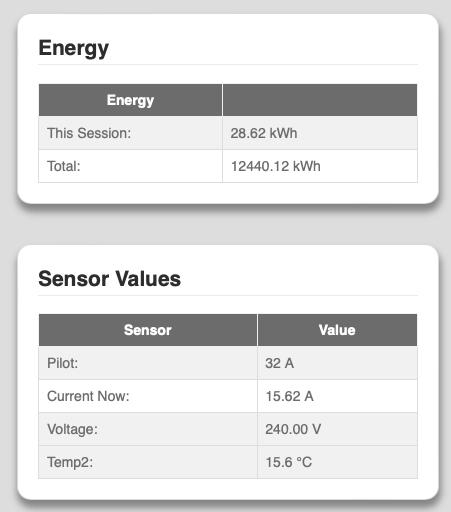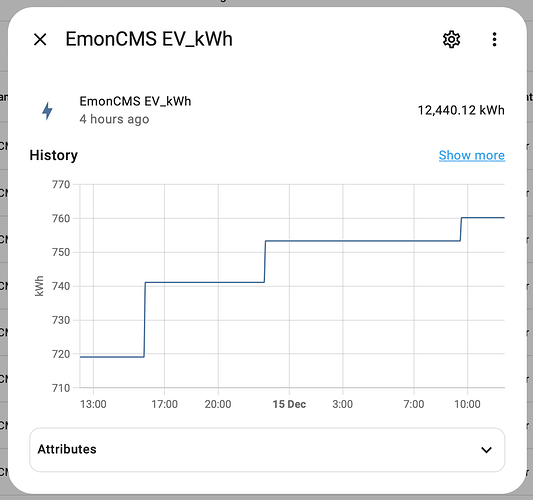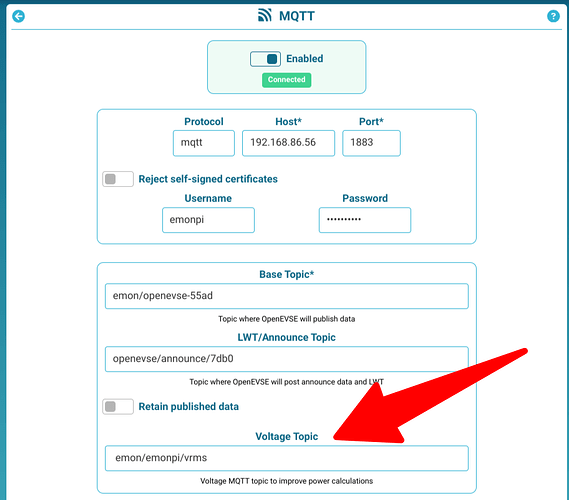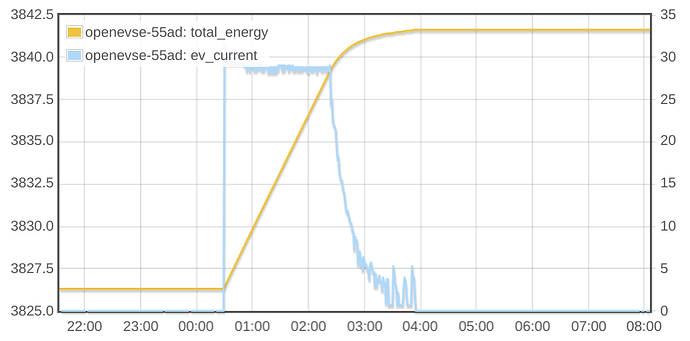Hi, in the web portal for my EVSE it shows the voltage as 240 in the sensors section.
This looks to be a fixed value and I was wondering what purpose it serves?
In particular, my installation is a 3 phase design so the value only represents the voltage on 1 phase. Furthermore, it’s not representative of my actual voltages (we currently run at about 250v as an average across the 3 phases). I was just wondering if this has any bearing on any of the other sensor values being produced by the EVSE unit?
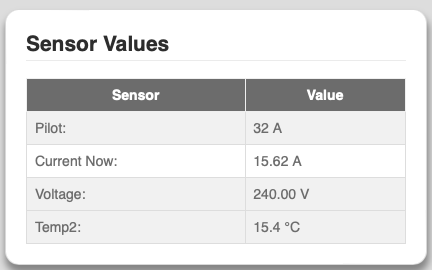
In addition, I’m also seeing anomalies with the recording of the kWH data for the Evse. The totals are fine, it’s really about the time that they are applied.
The EVSE dashboard shows that my total kWh doesn’t progress at all during the day, and that charging is logged into the “Current Session”, but it’s not clear when it’s transferred to the total. It seems like it’s either transferring it before the next days charging starts. As a result my energy usage charts are skewed by the poor timing of this data being recorded?
For example, this 28.62kWh session finished much earlier today, but the Total kWh hasn’t moved at all so far today.
I’m also interested to know if the fixed voltage of 240v is being used to perform the kWh calculation in conjunction with the current, hence my initial question.
The energy monitoring graph above shows the problem. There is not a continue increase in kWh during the period the car is plugged in, but jumps in values, typically the following day. For example, the last jump in the chart just before 10am today represents the charge applied to the vehicle yesterday when the vehicle was plugged in around 10:30pm the day before. So what should be shown really is a sloping increase at the time the charge was applied, not a jump when the car is next plugged into the charger. As a result, I have consumption recorded in my charts on the wrong times / days.
Is anyone else experiencing this? The only way I can think to resolve it is to create my own kWh feed using the Amp and Voltage input and use a Power to kWH feed recorder, but it seems daft when there is a cumulative kWh input already there?
If no voltage feed is selected via MQTT the EVSE will use 240V as default
On older FW total_energy is transferred when the EV is unplugged, on newer FW total_energy value is incremented in realtime e.g
Here’s the latest FW: https://github.com/OpenEVSE/openevse_esp32_firmware/releases
Thanks Glynn. Didn’t spot the voltage MQTT option. I’ve set that now and I’ve started a charge and can see the voltage being read more accurately now. Thanks for that.
I’m on an older firmware 7.1.3.3P and WiFi 4.0.1
From memory I think you advised previously that I will need to crack open my EVSE to apply the firmware updates so that’s not going to happen anytime soon! Maybe in the summer!
You only need to update the WiFi FW, this can be done via OTA using web interface, but worth checking which WiFi module you have before applying the update.
Thanks for above discussion. My EVSE is sometimes tripping with my new car - which seems to charge a bit faster. The supply to the EVSE is fused at 32 Amps, which I believe should be fine unless (as seems to happen with my supply) - the voltage drops. This seems to happen reliably 5-7am (when I assume demand rises in the area) - especially on colder mornings.
It feels like I need to limit the charge speed. I can crudely do it statically for the time being. I could also the EVSE a dynamic max charge speed in amps via MQTT or http from my Victron node red.
However - just wondering if sending the EVSE a voltage would be sufficient? Does the voltage sensor/input serve any purpose other than reporting energy consumption after the event?
Mine is on a 40A MCB with appropriate cable size as either of my EVs will pull over 7kW which is bouncing off 32A when the voltage drops to around 225V or less.
Thanks - I kinda wondered if that should be the case with mine. It was originally for a Kaluza charger - and until I got a new EV earlier this year I’d never had this issue - but I know that the AC charger can go up to 11KW - and I get the impression it asks for more than the charger can handle.
Has anyone here had any success with this endpoint Update the EVSE configuration | OpenEVSE WiFi v4 specifically the “max_current_soft” parameter?

